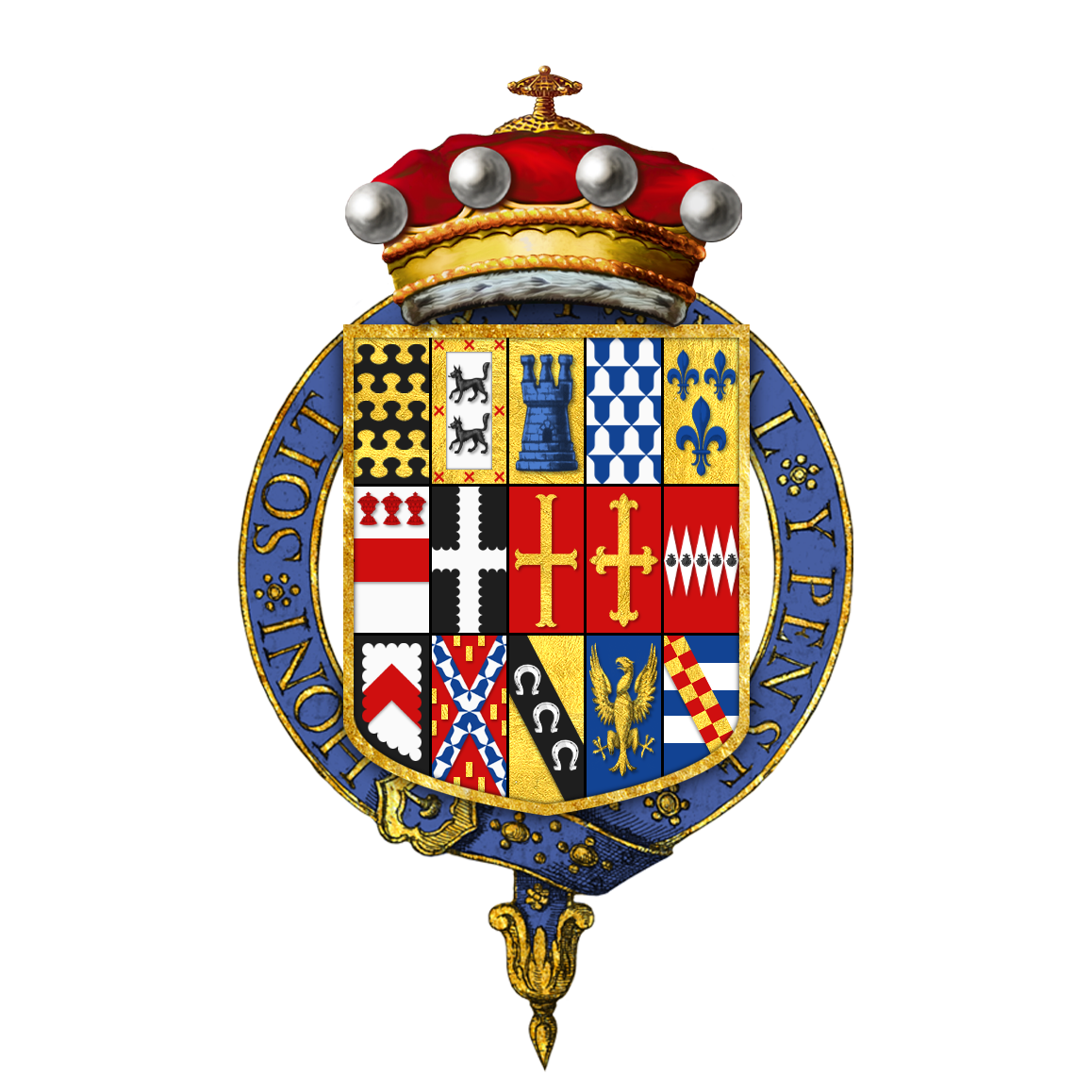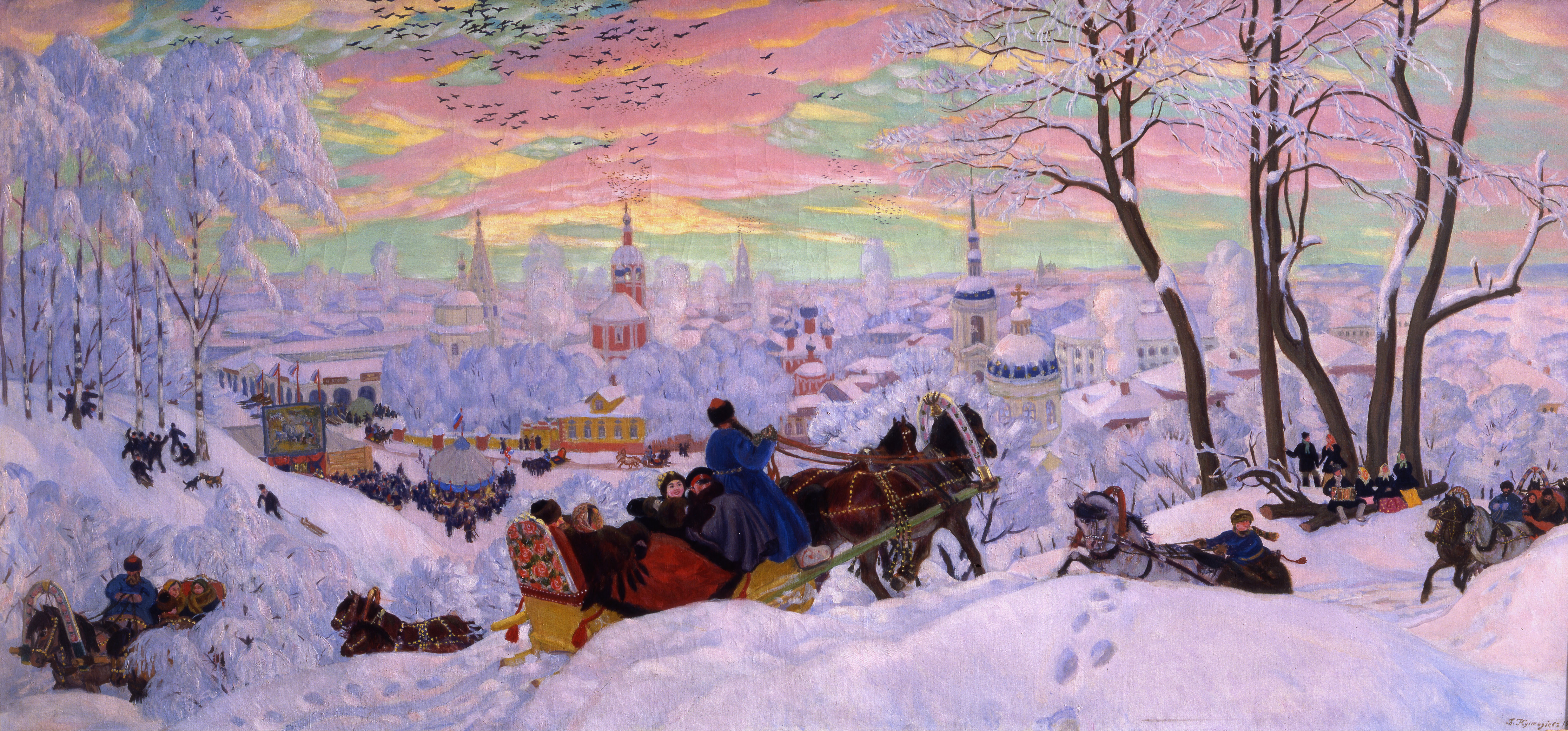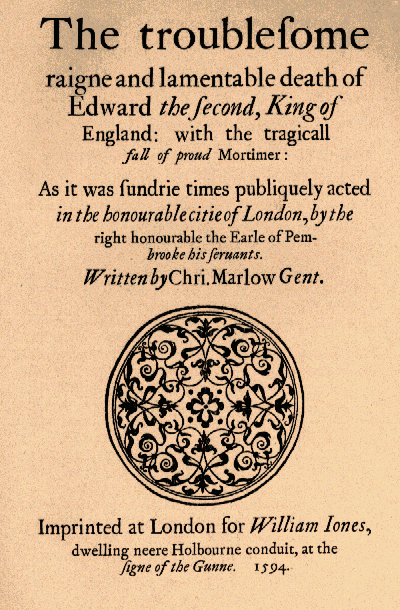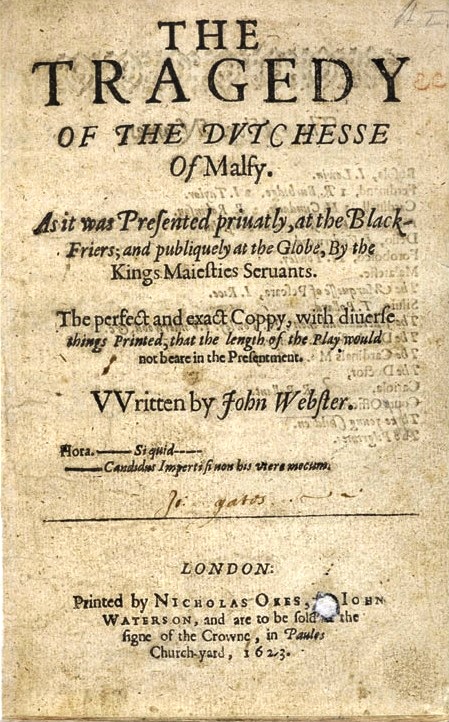|
Red Bull Theatre
The Red Bull was an inn-yard conversion erected in Clerkenwell, London operating in the 17th century. For more than four decades, it entertained audiences drawn primarily from the City and its suburbs, developing a reputation over the years for rowdiness. After Parliament closed the theatres in 1642, it continued to host illegal performances intermittently, and when the theatres reopened after the Restoration, it became a legitimate venue again. There is a myth that it burned down in the Great Fire of London but the direct reason for its end is unclear. Design The Red Bull was constructed in about 1605 on St John Street in Clerkenwell on a site corresponding to the eastern end of modern-day Hayward's Place. Contemporary documents reveal that it was converted from a yard in an inn. This origin accounts for its square-ish shape, shared, for example, by the original Fortune Theatre among playhouses of the time. The Red Bull inn's name may relate to drovers bringing cattle down St Jo ... [...More Info...] [...Related Items...] OR: [Wikipedia] [Google] [Baidu] |
London Theatres C16—C17, After Redwood
London is the capital and largest city of England and the United Kingdom, with a population of just under 9 million. It stands on the River Thames in south-east England at the head of a estuary down to the North Sea, and has been a major settlement for two millennia. The City of London, its ancient core and financial centre, was founded by the Romans as '' Londinium'' and retains its medieval boundaries.See also: Independent city § National capitals The City of Westminster, to the west of the City of London, has for centuries hosted the national government and parliament. Since the 19th century, the name "London" has also referred to the metropolis around this core, historically split between the counties of Middlesex, Essex, Surrey, Kent, and Hertfordshire, which largely comprises Greater London, governed by the Greater London Authority.The Greater London Authority consists of the Mayor of London and the London Assembly. The London Mayor is distinguished from the L ... [...More Info...] [...Related Items...] OR: [Wikipedia] [Google] [Baidu] |
Charles Blount, 1st Earl Of Devonshire
Charles Blount, 1st Earl of Devonshire, KG (pronounced ''Blunt''; 15633 April 1606) was an English nobleman and soldier who served as Lord Deputy of Ireland under Queen Elizabeth I, and later as Lord Lieutenant of Ireland under King James I. He succeeded to the family title as 8th Baron Mountjoy in 1594, before commanding the Crown's forces during the final years of Tyrone's Rebellion. He was able to defeat Tyrone at the Battle of Kinsale, and captured his headquarters at Dungannon before peace was agreed at the Treaty of Mellifont in 1603. Early life The second son of James, 6th Baron Mountjoy and Catherine, only daughter of Sir Thomas Leigh (Commissioner for Suppression of the Monasteries), Charles Blount was among the most distinguished of the family, succeeding as 8th Baron Mountjoy on the death of his unmarried elder brother William, 7th Baron Mountjoy. The good fortune of his youthful and handsome looks found favour with Queen Elizabeth I which aroused the jeal ... [...More Info...] [...Related Items...] OR: [Wikipedia] [Google] [Baidu] |
Anne Of Denmark
Anne of Denmark (; 12 December 1574 – 2 March 1619) was the wife of King James VI and I; as such, she was Queen of Scotland The monarchy of the United Kingdom, commonly referred to as the British monarchy, is the constitutional form of government by which a hereditary sovereign reigns as the head of state of the United Kingdom, the Crown Dependencies (the Bailiw ... from their marriage on 20 August 1589 and Queen of England and Ireland from the union of the Scottish and English crowns on 24 March 1603 until her death in 1619. The second daughter of King Frederick II of Denmark and Sophie of Mecklenburg-Güstrow, Anne married James at age 14. They had three children who survived infancy: Henry Frederick, Prince of Wales, who predeceased his parents; Elizabeth Stuart, Queen of Bohemia, Princess Elizabeth, who became Queen of Bohemia; and James's future successor, Charles I of England, Charles I. Anne demonstrated an independent streak and a willingness to use fa ... [...More Info...] [...Related Items...] OR: [Wikipedia] [Google] [Baidu] |
Prince Charles's Men
Prince Charles's Men (known as the Duke of York's Men from 1608 to 1612) was a playing company or troupe of actors in Jacobean and Caroline England. The Jacobean era troupe The company was formed in 1608 as the Duke of York's Men, under the titular patronage of King James' second son, the eight-year-old Charles (1600–49), then the Duke of York. Upon the death of Charles's elder brother Prince Henry in 1612, the company became Prince Charles's Men. They played mainly in the provinces for the first two years of their existence, but in 1610 they received a renewed royal patent that authorized them to play in London, "in such usual houses as themselves shall provide." Seven actors are listed in the patent: John Garland, William Rowley, Thomas Hobbes, Robert Dawes, Joseph Taylor, John Newton, and Gilbert Reason. Rowley was their dramatist and clown; Joseph Taylor would be their leading man in future years, and then fill the same function with the King's Men, when he replaced th ... [...More Info...] [...Related Items...] OR: [Wikipedia] [Google] [Baidu] |
Shrove Tuesday
Shrove Tuesday is the day before Ash Wednesday (the first day of Lent), observed in many Christian countries through participating in confession and absolution, the ritual burning of the previous year's Holy Week palms, finalizing one's Lenten sacrifice, as well as eating pancakes and other sweets. Shrove Tuesday is observed by many Christians, including Anglicans, Lutherans, Methodists and Roman Catholics, who "make a special point of self-examination, of considering what wrongs they need to repent, and what amendments of life or areas of spiritual growth they especially need to ask God's help in dealing with." This moveable feast is determined by Easter. The expression "Shrove Tuesday" comes from the word ''shrive'', meaning "absolve". As this is the last day of the Christian liturgical season historically known as Shrovetide, before the penitential season of Lent, related popular practices, such as indulging in food that one might give up as their Lenten sacrifice for the u ... [...More Info...] [...Related Items...] OR: [Wikipedia] [Google] [Baidu] |
Cockpit Theatre
The Cockpit was a theatre in London, operating from 1616 to around 1665. It was the first theatre to be located near Drury Lane. After damage in 1617, it was named The Phoenix. History The original building was an actual cockpit; that is, a staging area for cockfights. Most likely a round building with a peaked roof, about in diameter, it was erected under Henry VIII, c. 1530-32, as part of a gaming complex. Records indicate a major restoration in 1581-82 and renovations in 1589-90, 1602-3, and 1608-9 (the latter under the supervision of John Best, "cockmaster" to Henry Frederick, Prince of Wales, King James I of England, James I's eldest son and heir). In August 1616, Christopher Beeston acquired the lease to the building and converted it to an indoor playhouse. In March 1617, rioting apprentices attempted to destroy the playhouse, probably out of anger that their favorite plays had been removed from the Red Bull outdoor amphitheater, which charged only one penny for admissio ... [...More Info...] [...Related Items...] OR: [Wikipedia] [Google] [Baidu] |
Impresario
An impresario (from the Italian ''impresa'', "an enterprise or undertaking") is a person who organizes and often finances concerts, plays, or operas, performing a role in stage arts that is similar to that of a film or television producer. History The term originated in the social and economic world of Italian opera, in which from the mid-18th century to the 1830s, the impresario was the key figure in the organization of a lyric season. The owners of the theatre, usually amateurs from the nobility, charged the impresario with hiring a composer (until the 1850s operas were expected to be new) and the orchestra, singers, costumes and sets, all while assuming considerable financial risk. In 1786 Wolfgang Amadeus Mozart satirized the stress and emotional mayhem in a single-act farce ''Der Schauspieldirektor'' (''The Impresario''). Antonio Vivaldi was unusual in acting as both impresario and composer; in 1714 he managed seasons at Teatro San Angelo in Venice, where his opera ''Orla ... [...More Info...] [...Related Items...] OR: [Wikipedia] [Google] [Baidu] |
Edward II (play)
''The Troublesome Reign and Lamentable Death of Edward the Second, King of England, with the Tragical Fall of Proud Mortimer'', known as ''Edward II'', is a Renaissance or early modern period play written by Christopher Marlowe. It is one of the earliest English history plays, and focuses on the relationship between King Edward II of England and Piers Gaveston, and Edward's murder on the orders of Roger Mortimer. Marlowe found most of his material for this play in the third volume of Raphael Holinshed's ''Chronicles'' (1587). Frederick S. Boas believes that "out of all the rich material provided by Holinshed" Marlowe was drawn to "the comparatively unattractive reign of Edward II" due to the relationship between the King and Gaveston. Boas elaborates, "Homosexual affection ... has (as has been seen) a special attraction for Marlowe. Jove and Ganymede in ''Dido'', Henry III and his 'minions' in ''The Massacre'', Neptune and Leander in ''Hero and Leander'', and all akin, altho ... [...More Info...] [...Related Items...] OR: [Wikipedia] [Google] [Baidu] |
Christopher Marlowe
Christopher Marlowe, also known as Kit Marlowe (; baptised 26 February 156430 May 1593), was an English playwright, poet and translator of the Elizabethan era. Marlowe is among the most famous of the Elizabethan playwrights. Based upon the "many imitations" of his play ''Tamburlaine,'' modern scholars consider him to have been the foremost dramatist in London in the years just before his mysterious early death. Some scholars also believe that he greatly influenced William Shakespeare, who was baptised in the same year as Marlowe and later succeeded him as the pre-eminent Elizabethan playwright. Marlowe was the first to achieve critical reputation for his use of blank verse, which became the standard for the era. His plays are distinguished by their overreaching protagonists. Themes found within Marlowe's literary works have been noted as humanistic with realistic emotions, which some scholars find difficult to reconcile with Marlowe's "anti-intellectualism" and his caterin ... [...More Info...] [...Related Items...] OR: [Wikipedia] [Google] [Baidu] |
Thomas Dekker (writer)
Thomas Dekker (c. 1572 – 25 August 1632) was an English Elizabethan dramatist and pamphleteer, a versatile and prolific writer, whose career spanned several decades and brought him into contact with many of the period's most famous dramatists. Early life Little is known of Dekker's early life or origins. From references in his pamphlets, Dekker is believed to have been born in London around 1572, but nothing is known for certain about his youth. His last name suggests Dutch ancestry, and his work, some of which is translated from Latin, suggests that he attended grammar school. Career Dekker embarked on a career as a theatre writer in the middle 1590s. His handwriting is found in the manuscript of ''Sir Thomas More'', though the date of his involvement is undetermined. More certain is his work as a playwright for the Admiral's Men of Philip Henslowe, in whose account book he is first mentioned in early 1598. While there are plays connected with his name performed as early as ... [...More Info...] [...Related Items...] OR: [Wikipedia] [Google] [Baidu] |
The White Devil
''The White Devil'' (full original title: ''The White Divel; or, The Tragedy of Paulo Giordano Ursini, Duke of Brachiano. With The Life and Death of Vittoria Corombona the famous Venetian Curtizan'') is a tragedy by English playwright John Webster (c. 1580 – c. 1634). According to Webster's own preface to the 1612 Quarto Edition"To the Reader" the play's first performance in that year was a notorious failure; he complained that the play was acted in the dead of winter before an unreceptive audience. The play's complexity, sophistication, and satire made it a poor fit with the repertory of Queen Anne's Men at the Red Bull Theatre, where it was first performed. It was successfully revived in 1630 by Queen Henrietta's Men at the Cockpit Theatre and published again in 1631. Background The story is loosely based on an event in Italy thirty years prior to the play's composition: the murder of Vittoria Accoramboni in Padua on 22 December 1585. Webster's dramatisation of this event ... [...More Info...] [...Related Items...] OR: [Wikipedia] [Google] [Baidu] |
John Webster
John Webster (c. 1580 – c. 1632) was an English Jacobean dramatist best known for his tragedies '' The White Devil'' and ''The Duchess of Malfi'', which are often seen as masterpieces of the early 17th-century English stage. His life and career overlapped with Shakespeare's. Biography Webster's life is obscure and the dates of his birth and death are not known. His father, a carriage maker also named John Webster, married a blacksmith's daughter named Elizabeth Coates on 4 November 1577 and it is likely that Webster was born not long after, in or near London. The family lived in St Sepulchre's parish. His father John and uncle Edward were Freemen of the Merchant Taylors' Company and Webster attended Merchant Taylors' School in Suffolk Lane, London. On 1 August 1598, "John Webster, lately of the New Inn" was admitted to the Middle Temple, one of the Inns of Court; in view of the legal interests evident in his dramatic work, this may be the playwright. Webster married 17-year-o ... [...More Info...] [...Related Items...] OR: [Wikipedia] [Google] [Baidu] |







